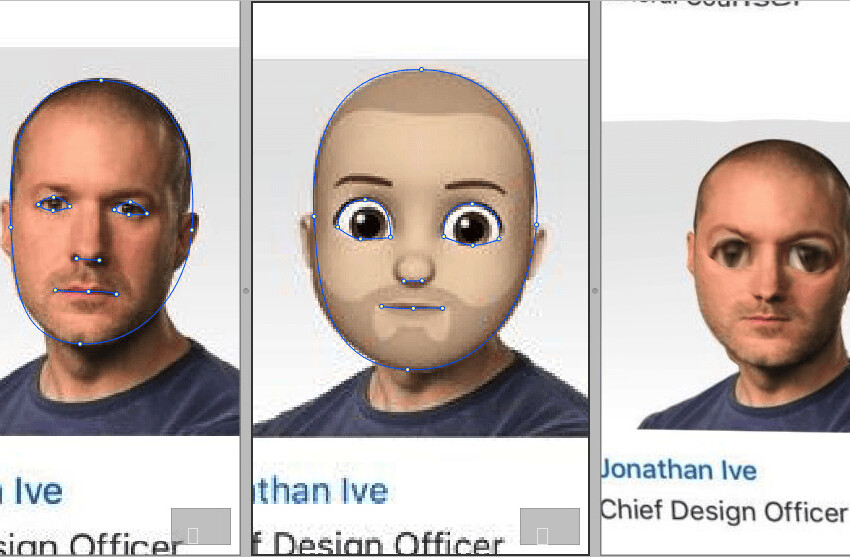
I’m really lucky. I get to wake up in the morning, switch on my computer, before I’ve made my first pot of coffee, and proceed to spend the rest of the day surfing the ‘net for a living. I end up spending far longer than 8 hours in front of this screen, checking Twitter, Google+, Flickr, The Next Web (obviously), my RSS reader, YouTube and more. I’m constantly looking for a better Twitter client, looking for the best way to listen to music online and looking for interesting productivity apps (which I usually spend more time setting up than actually using).
In short, I’m always looking for ways to get sucked deeper into the World Wide Web. And if I’m not at my computer, I’m fiddling with my phone or downloading a new app for my iPad. I have a USB modem that I can take with me anywhere to ensure I can go online anywhere. Did I mention that I chose the Google Nexus S purely because of the awesomely easy way it is to create a WiFi hotspot using just my cell phone?
While I was sifting through the many sites I’m subscribed to on Google Reader, I came across this article on Simply Zesty, which explained why the first thing I do when I open my eyes is grab my phone, which sits quietly on the side table next to my bed, regardless of the various theories on why you shouldn’t keep your cell phone next to you while you sleep. It’s not my fault. It’s the dopamine.
Reading the article, I realized some people are addicted to gambling, others are addicted to drugs, women, fast cars or video games. My choice of drug begins with WWW.
My addiction is, to a certain extent, necessary. I need it so that I can try to be the first person to discover a really cool new Web app, or so I can sit here and figure out the 101 different ways that I’m going to put Google+ to work for me.
A few months ago, I worked at a publishing house, where that addiction probably didn’t help much. It’s not like I wasn’t able to do my job. I didn’t get to the office, after my one hour commute, jonesing for a hit off Twitter or YouTube. I got to my office, sat down, checked my work email. (And before you say it, that doesn’t count, because I worked in a very offline publishing house, which has yet to put out a single e-book.)
You’re probably wondering where I’m going with this, right?
After reading the article on Simply Zesty, I was wondering if there was a way to put a positive spin to it all. Particularly after reading this worrying paragraph:
Technology addictions can lead to increased stress-levels, shorter attention spans (especially in kids), irregular sleep-patterns and poor sleep, to name but a few.
Most worryingly, nobody has done research into the long-term effects of dopamine on the human brain in the age of Twitter, Facebook and e-mail. Rats were investigated in the 60s and again in the 90s, but not so much humans. Simply put, there might be long-term side-effects to dopamine ‘addiction’ that we simply don’t know about yet.
Regardless of whether or not your job, lifestyle, or education has anything to do with the Internet, if you find yourself spending more time with your gadgets than with your loved ones, you can find a way to get that addiction under control, and put your Internet knowledge to work for you.
Find ways to make your internet addiction useful
It’s obvious that the Internet is a useful and invaluable tool. Even if you’re not a fan of a social networking sites like Facebook or Twitter, as examples, there’s no denying that they have their uses as marketing, fundraising and even charity tools. And a little bit of Facebook never killed anyone. So if you’re spending a lot of time in front of your computer, turn it into a positive and productive experience.
Ditch your newspaper: If you’re used to reading the morning paper, ditch the newspaper and opt for an online alternative. I’m sure many of you already do this, but it’s the obvious place to start. And it’s an environmentally friendly place at that. That’s just the first step.
Social media is so mainstream now, there’s nothing surprising about hearing characters in hit TV shows talking about their Twitter followers, performing searches on Google, and even Bing, not to mention, all the pretty shiny gadgets they use to get online. The Internet, and particularly social media, are such an intricate part of our lives now, so if you’re going to use them, look for positive uses. Twitter is a great source for news. Rather than being sucked into the Twitter rumour mill, create a list consisting only of professional journalists, and the official accounts of major newspapers and news channels. Beyond keeping up with random bits of information, pictures and videos being shared on Twitter, you’ll be aware of current world events thanks to the social networking site.
Give back to the community: If you’re good at something – whether it’s photography, writing, coding, design – whatever your personal talent is – you could use your time to create tutorials using a blog, vlog or screencasts – and get it online to share with others.
Find a job: If you’re job hunting, use the time you spend online to think of ways you can use the Internet to help get you noticed, or how to use Twitter itself. Instead of putting your CV online, why not create a YouTube video?
These are just a few examples of how you can turn the time you spend online into something useful and productive.
Keep your internet addiction under control
Don’t get me wrong. Like any addiction, too much of anything isn’t good for you. So while there are ways that you can use your vast Internet knowledge for good, you also have to learn when to take some time off. There are a few tools you can use to curb your Internet time, but without a little self-control, they aren’t worth much.
Limit your time online: Chrome users can install plug-ins like StayFocusd while Firefox users can opt for LeechBlock. Decide on a certain amount of time, or certain time period which you want to stay off the sites you can’t seem to get enough of. When you fire up your browser, and see the block, it will serve as a good reminder that there are better ways you could be spending your spare time.
If you have other gadgets that get you online – such as a phone or a tablet, simply switch off your push notifications, and even switch off your Internet connection. Kill the data connection on your phone. Turn off your router, and go do something else. Mac and Windows users can use an app like Freedom to switch off your Internet connection for up to 8 hours at a time. If y.ou need the Internet for work, at least switch off notifications that tend to distract you
Use software to help you focus: If, like me, you have to spend a large part of your working day online, in addition to blocking sites, you can also use tools to make sure that you stay focused on the task at hand. Mac users can use Spaces to separate work and pleasure. Windows users can use a program like Desktops to achieve the same effect. Use a productivity technique like Pomodoro to encourage you to stay focused for a specific period of time. Avoid opening several tabs in your browser at one time.
If you don’t need the Internet while you’re working at your computer, turn that off too. Use minimalist writing apps to help you stay focused – Omm Writer is a personal favourite, and is a great way to keep out Twitter, Google+, email and all other forms of distraction the Internet offers. Mac users in particular have a plethora of productivity and distraction-free tools to choose from, like Concentrate, Think and Isolator.
Figure out what your main weaknesses are on the Internet and find a tool or app that will keep it out of your line of sight for as long as you need.
Beyond software solutions, you can also take tips from how to deal with any other addiction, like finding a partner in crime who will push you (and who you push) to make sure that you stick to a healthy routine.
These are just some of the ways you can manage and control your Internet addiction. Have you come up with any ways to keep your Internet use under control? Let us know in the comments.
Get the TNW newsletter
Get the most important tech news in your inbox each week.





